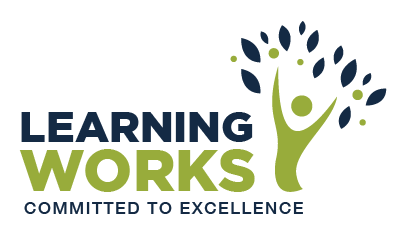Course Description
Channelling diversity potential in the workplace can lead to greater performance and innovation. At the end of the course participants will acquire the necessary knowledge and dynamic skills to manage diversity appropriately and effectively. During the course, they will look at different concepts of inclusion and diversity and they will be offered concrete tools, techniques and methods to be used to manage diversity.
The course aims to help participants to recognise and understand diversity potential in the workplace to promote inclusion and a sense of belonging in their organisations and so reduce the turnover. It will help them to build a culture of tolerance through awareness, training, communication and conflict management strategies. The course will enable participants to enhance communication and productivity, valuing and transforming their diverse workforce into a real competitive advantage.
Participants will learn how to use assessment tools, human resources programmes, communication campaigns and training programmes and to develop their own tailor-made Diversity and Inclusion strategy to value and use their present and prospect employees to create innovative products, services and business practices that can set the organisation apart and differentiate it to create a competitive advantage.
Learning Outcomes
By the end of the course programme, students will be able to:
- Develop and use an “inclusive language” (that avoids the use of certain expressions or words that might be considered to exclude particular groups of people) being mindful and purposeful in communicating with others and doing so with empathy and in all the career stages.
- Carefully consider the people before the communication and have a communication style (concepts to know, expressions to avoid, and words to incorporate into the vocabulary) that includes and treats everyone with respect and dignity.
- Mention characteristics like gender, sexual orientation, religion, nationalities, ethnic and racial group or ability only when relevant to the discussion and always avoid derogatory terms.
- Communicate effectively across cultures and overcome language barriers.
- Recognise conscious and unconscious biases.
- Understand and manage the relationships between language and protected rights.
- Design and manage internal inclusive communication plans and effective communication strategies.
- Design and manage external inclusive communication plans.
- Develop a growth mindset willing to learn and prone to changing and adapting according to the needs of the team, the organisation, the clients and the market.
- Develop a global mindset, curious and open to the other cultures and people and ready to change perspective and strategy for effective results.
- Improve and develop a different set of skills: cross-cultural competency, critical thinking, conflict management and problem-solving.
- Understanding how differences may affect or influence relationships at work.
- Develop the capacity to identify and empathise with the beliefs, values and customs of the others.
- Recognise and overcome prejudice, discrimination and biased behaviours.
- Develop monitoring and assessment strategies and plans for sustainable and effective initiatives.
- Develop the ability to link theory to practice.
Target Candidates
The course is aimed at practising or aspiring managers and in roles such as:
• Operations Manager
• Divisional Manager
• Departmental Manager
• Specialist Manager
• Human Resources Manager
• Talent Development Manager
• Recruitment Specialist
• Diversity and Inclusion Specialist
• Social workers
• Teachers and vocational trainers
• Managers working across national borders
• International organisations personnel
And to anyone interested in creating an inclusive and supportive culture that promotes equal opportunities and treatment of employees in his/her company/organisation.
| Course Code | Duration | Credit Value | Next Intake | FT/PT |
|---|---|---|---|---|
| LW/M/002 | 3 months | 4 ECTS | May 2024 | PT |
| Contact Hours | Placement Hours | Self Study Hours | Assessment Hours | Total Learning Hours |
|---|---|---|---|---|
| 30 | 0 | 60 | 10 | 100 |
Mode of Training
Lectures, group discussions, presentations, simulations and case studies.
Assessment
The learner will be assessed through an ongoing assessment for learning by way of oral, group discussions and practical exercises that will take place throughout the entire course, to assess and consolidate the learning being covered. Students will be provided with case studies, examples, simulation materials and practical tests that will be evaluated by the instructors.
Awarding Body
Learning Works
Lecturers
Course Structure
Unit 1: Cultural Awareness (1 ECTS)
Cultural diversity is increasing in Malta posing challenges to organizations on how to deal with diverse groups. Attracting and retaining a diverse workforce and promoting an inclusive society are the challenges government, schools and companies need to be ready to address. Increasing awareness of the cultural differences and the challenges posed is the first step. Only informed and aware teammates, colleagues, managers, directors, citizens can develop tools, synergies and strategies to cope with diversity and create more inclusive companies. The Unit provides students with data and information about the macro, meso and micro cultural challenges at individual, organisational and societal levels. It will then present the cultural frames and strategies to become more culturally aware, uncover conscious and unconscious biases and prevent intercultural misunderstanding.
Unit 2: Equality and Diversity Legislation and Guidance (1 ECTS)
Cultural diversity is increasing in Malta posing challenges to organizations on how to deal with diverse groups. Attracting and retaining a diverse workforce and promoting an inclusive society are the challenges government, schools and companies need to be ready to address. Increasing awareness of the cultural differences and the challenges posed is the first step. Only informed and aware teammates, colleagues, managers, directors, citizens can develop tools, synergies and strategies to cope with diversity and create more inclusive companies. The Unit provides students with data and information about the macro, meso and micro cultural challenges at individual, organisational and societal levels. It will then present the cultural frames and strategies to become more culturally aware, uncover conscious and unconscious biases and prevent intercultural misunderstanding.
Unit 3: Cultures at Work (1 ECTS)
The Unit aims at providing students with critical theoretical frameworks to explore the role and importance of interpersonal relations and communication in different cultural contexts at individual, organisational and societal levels. Students will learn to integrate this knowledge and understanding, and apply it within their own sector/organisation/department.
Unit 4: Diversity and Organisational Performance (1 ECTS)
The Unit will help students to understand and analyse the requirements for managing, monitoring and reporting on equality, diversity and inclusion. At the end of the Unit they will be able to behave and develop an inclusive leadership style. They will understand causes, effects and identify and create strategies to prevent inequalities and discrimination in organisations and service delivery. Moreover, the Unit will provide students with the theoretical frameworks, policy implications, international lessons learned and best practices of equality and inclusion in organisational performance. It will facilitate a critical understanding of the opportunities and complexities of developing inclusive approaches to employment, service delivery and public engagement and strategies to develop an action plan, and monitor its outcomes to make continuous improvement.
Entry Requirements
To apply for this course, students should hold:
• a MQF Level 3 or equivalent qualification;
• good level of English (IELTS 5 or equivalent)


